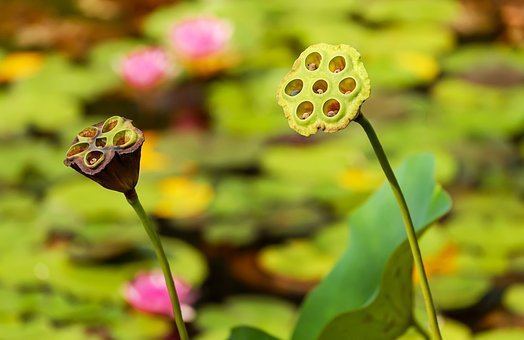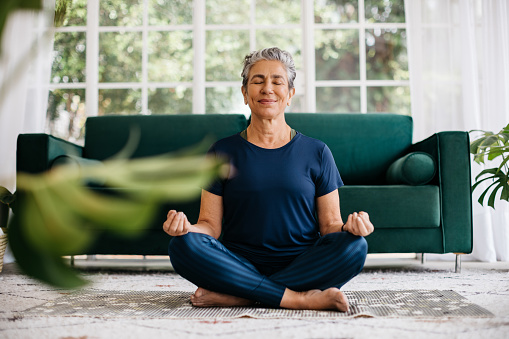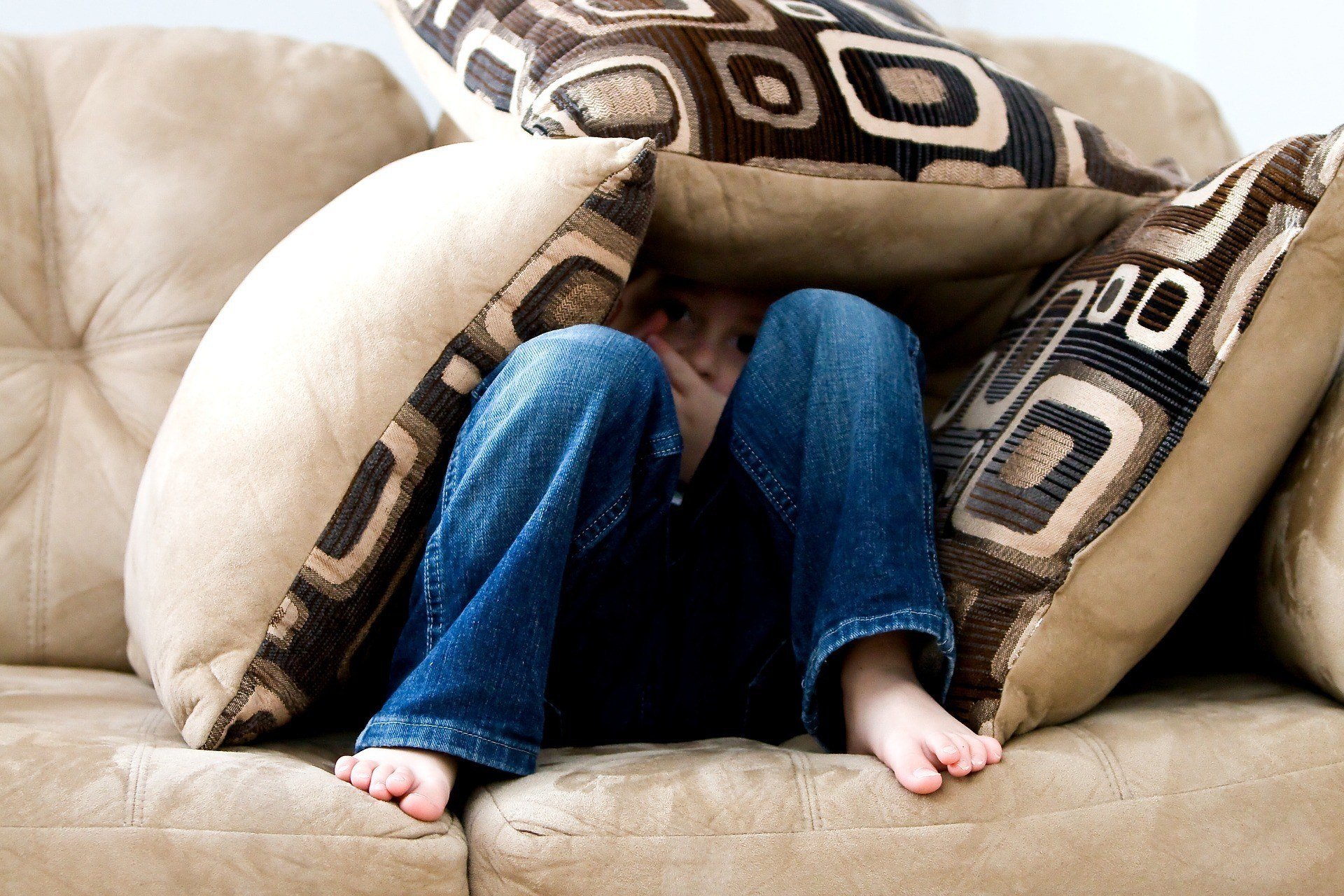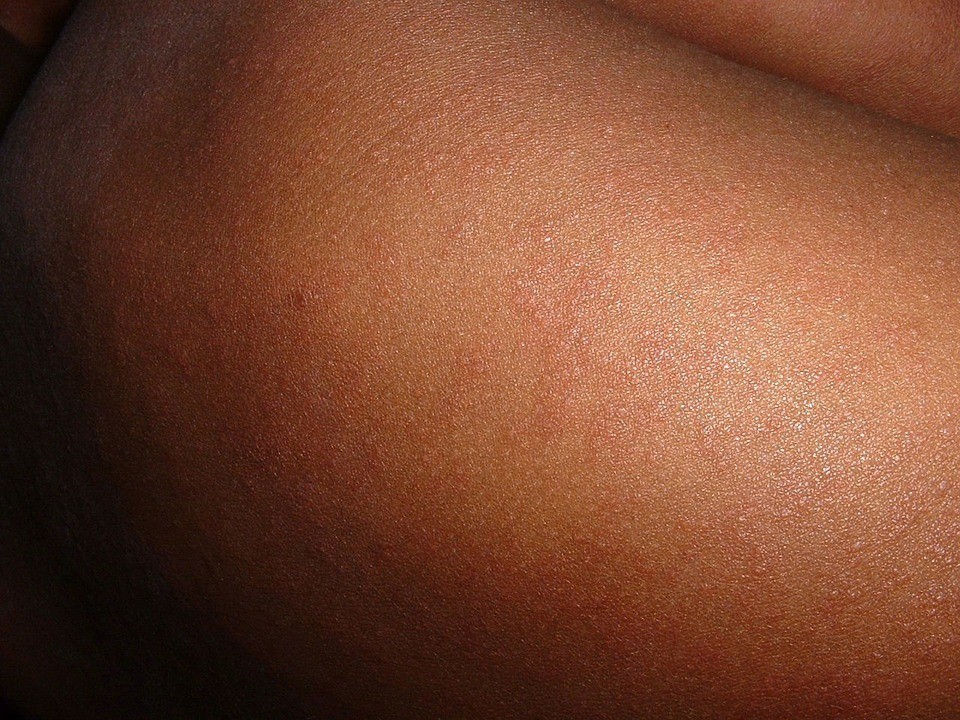Is Trypophobia Real? How Can EFT Tapping Help?

In this article, you'll learn about trypophobia, the possible triggers and symptoms of Trypophobia, and how EFT Tapping Therapy can help individuals cope with their fears and heal the root cause that triggers trypophobia.
Do you become uncomfortable and ill to your stomach when you see a honeycomb, sea sponges, or soap bubbles? If yes, then you might be suffering from trypophobia, or the fear of holes, where the sight of repetitive patterns scares you.
You are not alone. Everyone struggles with some kind of fear - from being scared of the dark to the fear of speaking in front of a huge audience.
A DIAGNOSTIC AND STATISTICAL MANUAL ON WHAT IS TRYPOPHOBIA
Trypophobia refers to the psychological aversion to the sight of irregular patterns or clusters of small holes or bumps. The name for this problem comes from the Greek word "trypo" which means "hole."
When people with trypophobia view such patterns or trypophobic images that consist of holes or spots, they have a significant physical and emotional reaction. The more circles there are in a cluster, the more uneasy people feel.
Trypophobia is not officially recognised as a psychological disorder in the Diagnostic and Statistical Manual of Mental Disorders (DSM-5) or the American Psychiatric Association's Diagnostic, which are widely accepted classification systems for diagnosing mental health conditions. Although, it can be classified as a fear or phobia that causes significant anxiety.

TRIGGERS FOR TRYPOPHOBIA
People who suffer from trypophobia, one of a list of anxiety disorders, are frequently triggered by images of clusters of small, irregular holes, such as:
Lotus seed pods, lotus breast
Lotus seeds photoshopped onto the skin
Surinam toad giving birth
Tafoni (rock formation)
Coral
The frozen peas image
Googly eyes on the face
Sponges
Swiss cheese
Honeycombs
Strawberries
Soap bubbles
A cluster of eyes as found in insects
Fruit seeds
Holes or pebbles in concrete
Air holes in a slice of bread
Other patterns in the frosting of a cake or pie
Skin problems like sores, scars, pores and spots
Spotted animals
Pomegranates

The effect of a triggering image on people with Trypophobia can vary from no response to a severe reaction. Even if the image or item does not strictly fulfill the criterion, any repetitive pattern may trigger the feeling.
TRYPOPHOBIA SYMPTOMS
Following are some of the signs and symptoms of trypophobia or the fear of holes:
Goosebumps
Feeling repulsed
Feeling uncomfortable
Visual discomforts such as eyestrain, distortions, or illusions
Distress
Feeling your skin crawl
Panic attacks
Sweating
Nausea
Body shakes
Itching
Emotional distress
Fear and anxiety disorders

CAUSES AND RISK FACTORS OF MENTAL DISORDERS LIKE TRYPOPHOBHIA

Trypophobia is a condition with a limited understanding. Several theories have suggested that women are more likely to experience trypophobia compared to men. It's also a trait that runs in families.
Some people who are terrified of hole patterns also suffer from other mental disorders, including:
Major depressive disorders
Anxiety disorders with symptoms of Generalised Anxiety Disorder (GAD)
Anxiety in social situations
Panic disorder
Obsessive-compulsive disorder (OCD)
Bipolar disorder
A 2017 clinical study suggests trypophobic people are most likely to have major depressive disorders or GAD. A relationship between social anxiety and trypophobia was also discovered (1).
WHAT ARE THE COMPLICATIONS AND WAYS OF PREVENTION?
If trypophobia isn't handled, it can lead to problems such as:
Mood disturbances
Isolation from others
Suicide is a form of self-destruction (in severe cases)
If you're dealing with acute trypophobia symptoms, you can use relaxation techniques to minimise the duration of the symptoms while they're happening and reduce their frequency and intensity in the future.
Deep breathing, for example, can calm your anxiety and fear by slowing down your heart rate and inducing a relaxation response in your body.
TREATMENT FOR TRYPOPHOBIA (FEAR OF CLOSELY PACKED HOLES)

There are a range of different treatments that you can explore for tacking Trypophobia:
1.
Counseling or Therapy
Cognitive-behavioral therapy (CBT) or exposure therapy might be helpful if the person's symptoms significantly impact their daily life.
2.
Relaxation Techniques
Techniques such as deep breathing, progressive muscle relaxation, and mindfulness meditation can help manage anxiety and stress associated with triggers.
3.
Desensitisation
Gradual exposure to images or situations that trigger trypophobia under controlled circumstances might help reduce the fear response over time.
4.
Medication
In some cases, a doctor might prescribe anti-anxiety medications or antidepressants to manage symptoms of anxiety that are triggered by trypophobia.
5.
Educational Resources
Learning about the condition and understanding the triggers may help some individuals manage their emotional responses to trypophobia-like images.
6.
Emotional Freedom Techniques (EFT)
This is a clinically proven therapy that lowers anxiety, tension, fear, phobias, and stress to create peace and contentment.
EFT Tapping combines tapping on acupressure points while saying statements out loud to accept situations to treat phobias. It can help you overcome even the most terrifying fears and has an element of exposure therapy, by getting to the base of the fear, or whatever is holding you back, and removes it.
EFT TAPPING FOR TRYPOPHOBIA
EFT Tapping for Trypophobia is a clinically proven treatment that can be experienced with a qualified practitioner. The steps are as follows:
STEP 1:
Conduct an assessment of the fear of holes
Ask yourself some questions to establish what the fear is about.
Examples of questions are as follows:
How intense are your emotional reactions to these patterns? Are they mild, moderate, or very strong?
Can you describe the emotions or sensations you experience when you see images or objects with clusters of small holes or patterns?
Has your fear of holes or these specific patterns caused any disruptions in your daily life, work, or social activities?
How long have you been experiencing these feelings or reactions related to patterns with holes or bumps?
STEP 2:
Identify the physical sensations
Recognise the physical sensations that are linked to trypophobia. You can do so by asking questions such as:
Have you noticed any physical symptoms when exposed to trypophobia triggers?
Where in the body are you experiencing the phobia?
What is the colour, texture, size, and shape of the phobia?
Measure the level of the phobia by asking: "On a scale of 1 to 10, what number is the phobia at, where 10 is high and 1 is not high at all." Then, start tapping on the same.
STEP 3:
Explore associated emotions and memories
Dig deep and explore the emotions and memories associated with the phobia by asking the following questions:
When have you felt these feelings and emotions before?
What memory comes up in your mind while you think of these emotions?
STEP 4:
Start tapping on the side of your hand
Tap on The Karate Chop using the setup statement, for example:
“Even though I have the phobia of honeycombs and I can feel the tingling in my stomach, it's at a number 9, blue in colour, and it makes me feel uncomfortable, I deeply and completely love and accept myself.”
(Repeat 3 times)
STEP 5:
Tap on the facial and upper body EFT Tapping points
Use the identified phrases to tap on the facial, upper body, and finger EFT Tapping Points:
Eyebrow: I fear …..
Temple: I feel it in my …..
Under eye: It's at a number …..
Under nose: It makes me feel …..
Chin: It's in my ….. at a number …..
Collarbone: It makes me feel …..
Under the arm: So …..
Thumb: So …..
Index Finger: Feared because …..
Middle Finger: I feel it in my …..
Little finger: So …..
STEP 6:
Close the sequence
Close the sequence by coming back to the EFT Karate Chop Tapping Points and repeating the setup statement once:
“Even though I have the phobia of honeycombs and I can feel the tingling in my stomach, it's at a number 9, blue in colour, and it makes me feel uncomfortable, I deeply and completely love and accept myself.”
STEP 7:
Breathe and relax
Take a gentle breath in and out, and have a sip of water.
STEP 8:
Test yourself
Test the intensity of the phobia. Ask yourself the following questions:
What number is the phobia at now?
What changed after you did the tapping?
How does it make you feel now?
You can stop and conclude with positive tapping once the fear has subsided to a level that you're happy with. If you feel it's the same or worse than before, explore more about the memories and emotions and then tap another round.

DOES EFT TAPPING WORK FOR TRYPOPHOBIA?
According to American Psychiatric Association, two psychological scientists, Geoff Cole and Arnold Wilkins, trypophobia exists in the form of an evolutionary response that might stem from an instinct to avoid clusters of small holes or bumps because they resemble the symptoms of contagious diseases (measles, chickenpox, leprosy), appear on dangerous animals (poisonous snakes and plants), or something dangerous might be living in them (2).
I might have remained unaware of trypophobia until I encountered it in my last EFT (Emotional Freedom Techniques) Seminar in New Delhi.
During the seminar, one of my trainees explained how she sees pictures of small holes in irregular pattern clusters, for example, images of the holes of the lotus seed heads.
She wanted to clear this phobia and came up with a demonstration. She was shown the image of the lotus seed head at a distance on a phone.
When she saw the image she felt a tingling sensation and became emotional and teary.
She shared that, on one hand, she had an aversion to seeing these images, and on the other hand, she was also drawn to viewing these images, almost obsessing over them.
We used the EFT Tapping process to release the surface sensations like tingling and then explored the root cause by asking questions:
When have you felt these feelings before?
When have you felt these sensations before?
She uncovered memories some related to the phobia and some unrelated situations where she felt out of control, anxious, and panicky.
We tapped on the past events and she started to feel calmer. Twelve minutes later she was shown the same image again and this time she did not feel as triggered by seeing the image and felt a lot calmer.
Interestingly, I realised when I was working with her that I also had similar sensations that made me feel uncomfortable. While I was working with her, my aversion to these images also disappeared.
"Fear is the path to the Dark Side. Fear leads to anger, anger leads to hate, hate leads to suffering."
YODA, STAR WARS
If you have been gripped by Trypophobia or the fear of holes I want you to know help is here. I have seen people overcome this phobia with EFT Tapping.
Love,
Dr Rangana Rupavi Choudhuri (PhD)
P.S. Want to discover if EFT is right for you? Book a Complimentary Discovery Call.
In summary, Trypophobia can be scary and very real to someone experiencing it, but it can be a very liberating experience once it no longer controls your life. With EFT, you can finally face and release your fear, and once and for all take back your power. Take your time and do what you feel is right for you, as and when you feel comfortable.
References:

Learn Emotional Freedom Techniques for self healing or to become professionally qualified - More
Our other seminars:
For the full calendar of events.
Other articles you may be interested in:




